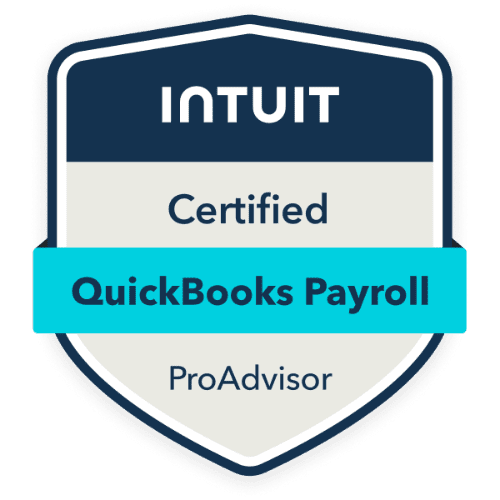Running a trades business—whether you’re a plumber, electrician, roofer, painter, HVAC technician, or general contractor—means dealing with unpredictable cash flow, emergency service calls, and clients who think payment terms are suggestions. One month you’re booked solid with profitable jobs, the next you’re waiting 60 days for payment while your supplier wants cash for that emergency part order.
A trades business emergency fund is your financial insurance policy—cash reserves specifically set aside for unexpected expenses, service call delays, or tool failures that can kill your cash flow overnight. This isn’t money for new equipment or truck upgrades; it’s your survival fund for when jobs go sideways and clients don’t pay on time.
If you’re operating job-to-job without cash reserves (and most trade professionals are), here are seven reasons why building an emergency fund should be your top business priority.
1. You’ll Survive When Clients Delay Payment (And They Will)
Trade service payment delays are a fact of life across all trades. Homeowners suddenly can’t find their checkbook after you’ve fixed their burst pipe. Commercial property managers stretch payment terms from 30 to 90 days without warning. General contractors wait for owner payments while you wait for yours.
Meanwhile, your suppliers want payment for that emergency HVAC part, your van payment is due, and you need to restock your electrical supplies. Emergency cash reserves keep your trade business running while you wait for payments, preventing the cash flow disasters that shut down plumbers, electricians, and other trade professionals every day.
2. You Won’t Lose Your Crew or Subcontractors During Slow Periods
Good trade workers and reliable subcontractors are worth their weight in gold, and losing skilled team members during temporary cash flow problems can cripple your business. Whether you’re a painting contractor with a trusted crew or an electrician who works with the same helper, maintaining these relationships is crucial.
When you have emergency funds, you can keep your reliable workers and subcontractors on payroll during slow periods, maintaining the team that makes your jobs profitable. The cost of recruiting, training, and building trust with new team members far exceeds the investment in maintaining your existing relationships.
3. You Can Handle Tool and Equipment Breakdowns Without Stopping Work
Trade equipment and tools break down at the worst possible times—usually in the middle of urgent service calls. Your plumbing snake jams during a Saturday emergency. Your electrical testing equipment fails during a commercial inspection. Your roofing nailer quits in the middle of a storm damage repair. Your paint sprayer clogs during a high-end interior job.
Tool and equipment failures can halt job progress, damage client relationships, and force you to turn away emergency service calls. Emergency funds enable you to replace or repair tools immediately, rent specialized equipment, or purchase backup tools without disrupting service schedules or incurring income loss.
4. You’ll Handle Seasonal Slowdowns and Emergency Service Demands
Trade businesses face unique seasonal challenges and opportunities. HVAC technicians see massive demand during summer heat waves and winter freezes. Roofers get swamped after storms but face slow periods during harsh weather. Plumbers deal with burst pipe emergencies during cold snaps but slower periods in mild weather.
These seasonal fluctuations don’t pause your fixed expenses—truck payments, insurance, tool payments, and basic overhead continue regardless. Emergency reserves bridge slow periods and provide the cash needed to handle emergency service surges when you need extra supplies and overtime pay.
5. You Can Take Advantage of Supply Deals and Bulk Discounts
Trade supplies and materials are expensive, and prices fluctuate constantly. Electrical suppliers occasionally offer significant discounts on wire and fixtures. Plumbing suppliers run promotions on PVC fittings and fixtures. Paint suppliers offer bulk discounts on high-quality materials.
Having emergency funds available allows you to capitalize on these opportunities, improving job margins and reducing material costs. Cash purchases also strengthen supplier relationships, potentially leading to better terms, priority service for emergency orders, and extended credit when needed.
6. You’ll Avoid Expensive Emergency Financing
When trade professionals face unexpected expenses without cash reserves, they often resort to costly financing: high-interest business credit cards, tool financing with personal guarantees, or factoring accounts receivable at steep discounts.
These expensive solutions often create bigger problems than the original emergency. Factor fees and high interest rates can consume job profits for months. Your emergency fund eliminates these costly Band-Aid fixes and keeps you from maxing out credit cards for emergency tool replacements.
7. You Can Accept Larger Jobs and Emergency Service Calls Confidently
Having adequate cash reserves allows you to bid larger projects and accept emergency service calls without worrying about upfront material costs. You can take on profitable commercial electrical work, large plumbing renovations, or multi-room painting projects without cash flow concerns.
This confidence translates into better job selection, higher profits, and stronger client relationships. You’ll stop turning down good work because you can’t afford to front material costs or handle the payment delay until project completion.

How Much Should Your Trade Business Save?
Trade businesses should maintain three to six months of operating expenses in emergency reserves. Calculate your monthly fixed costs: truck payments, insurance, tool payments, supply house accounts, and essential overhead expenses.
Consider your trade specialty: Service-based trades, such as plumbing and electrical, may require less due to quicker payment cycles, while larger project trades, like roofing and painting, should target six months due to longer project completion and payment cycles.
Building Your Trade Business Emergency Fund
1. Start with a separate business savings account.
Open a separate high-yield business savings account dedicated exclusively to emergency reserves. Keep these funds completely separate from job-specific accounts and operating capital.
2. Contribute a percentage of each job payment.
Set aside 5-10% of each payment received until reaching your target amount. Automate transfers to ensure consistent funding.
3. Use tool and equipment depreciation wisely.
When tools or vehicles are paid off, continue making those payments into your emergency fund instead of immediately upgrading equipment.
4. Make it a line item in your budget.
Treat emergency fund contributions like any other monthly expense.
When to Use Your Emergency Fund
Use emergency reserves only for genuine business emergencies, such as extended payment delays affecting operations, critical tool or equipment failures, seasonal income gaps, unexpected supply price increases, or urgent equipment repairs needed to complete jobs.
The Bottom Line
Every successful trade professional faces unexpected challenges—the difference between businesses that survive and those that fold isn’t luck, it’s preparation. Emergency funds provide the financial breathing room to handle crises professionally instead of desperately.
Need Help Getting Your Finances Organized?

Building an emergency fund is just one piece of solid financial management for your trade business. If you’re struggling to track job costs, manage tool and supply expenses, or simply don’t have time to keep up with your books, that’s where I come in. My bookkeeping services help contractors, plumbers, electricians, roofers, painters, and other trade professionals maintain clear and accurate financial records, enabling you to make informed decisions about everything from emergency fund contributions to equipment investments.
When your books are organized and up to date, building that crucial safety net becomes much more manageable. Ready to get your finances on track? Let’s discuss how I can help your trade business establish a stronger financial foundation.
This blog post is intended for informational and educational purposes only and should not be construed as financial, tax, or legal advice. Every business situation is unique, and tax laws and regulations are subject to frequent changes. Please consult with a qualified accountant, tax professional, or attorney before making decisions about your business structure or bookkeeping practices. The information provided here is based on current understanding at the time of publication and may not reflect the most recent changes in tax law or regulations.










